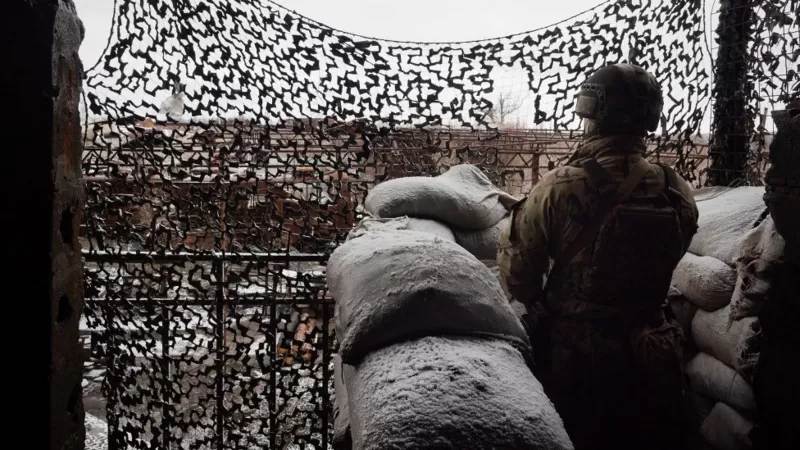As a major Russian military exercise in Belarus and the Black Sea unfolds, British Prime Minister Boris Johnson has warned that the Ukraine crisis is likely to reach its most dangerous point.
“The war will be a complete catastrophe,” Mr Johnson said at the North Atlantic Treaty Organization (NATO) headquarters in Brussels.
A joint Russian-Belarusian maneuver has begun in Ukraine’s neighborhood
He added in a joint news conference with the NATO Secretary General that the West has pursued a policy of strict deterrence and patient diplomacy.
NATO Secretary-General Jens Stoltenberg also warned that a new Russian invasion of Ukraine would lead to more, if not less, presence of the organization.
Boris Johnson will leave for Poland after Brussels.
The joint maneuver of the Russian and Belarusian armies on Belarusian territory has already begun.
The 10-day exercise and the deployment of about 100,000 Russian troops near the Ukrainian border have raised concerns about the possibility of conflict in the region.
According to the Russian Ministry of Defense, General Valery Grasimov, Chief of General Staff of the Russian Army, arrived in Belarus yesterday to monitor joint military exercises.
According to the report, joint units of 30,000 people along with other equipment, including two battalions of the S-400 surface-to-air missile system and a number of Russian military aircraft, will take part in the maneuver.
Russia’s Defense Ministry says “several fighter jets” have been flown to Belarus. This is the largest Russian military presence in Belarus since the collapse of the former Soviet Union.
Satellite images show the transfer of significant amounts of combat equipment to the Belarusian-Ukrainian border. Belarus, like Ukraine, was one of the republics of the former Soviet Union, which became independent with the collapse of the country.
Alexander Lukashenko, President of Belarus, is a close ally of Vladimir Putin, and during the ten-month protests against the results of Belarus’s 2020 presidential election, Russia supported the government in cracking down on protesters. Alexander Lukashenko has been described as “the last remaining dictator in Europe” and Western governments have imposed sanctions on Belarus in response to the crackdown.
Probable starting point for the invasion
The Belarusian border is about 210 km from Kiev, the capital of Ukraine. The two places are connected by a highway. Western sources have cited Belarus along the Crimean peninsula as the starting point for a possible Russian invasion of Ukraine.
Russia annexed the Crimean peninsula from Ukraine in 2014, following a decision by the Ukrainian parliament to oust the pro-Russian president for killing opposition protesters. Russia’s reason was its support for the Russian-speaking minority in Ukraine.
The US government has blamed Russia-Belarus maneuvers for “escalating tensions” in the current crisis in the region, and White House spokesman Jen Saki said the military exercise was “more of an act of escalating rather than reducing tensions”.
A spokesman for the Russian president’s office, meanwhile, described the move as a “serious step” to strengthen ties between the two countries, saying “the two countries are facing unprecedented threats.”
However, Russia’s ambassador to the European Union, Vladimir Chizhov, told the BBC that his country still believed that diplomacy could help reduce tensions in Ukraine. He also assured that Russian forces in Belarus will return to their permanent bases after the end of the exercise.
Earlier this week, French President Emmanuel Macron met with Vladimir Putin in Moscow. Talks on resolving the Ukraine crisis will resume on Thursday, with representatives from Russia, Ukraine, France and Germany in attendance, he said.
Mr Macron told reporters on Wednesday that Vladimir Putin had assured him that Russian forces would not escalate the crisis, but that Russia had not confirmed such a guarantee.
French officials have said that after two days of diplomatic efforts led by Mr Macron, proposals for negotiations under the Minsk agreement could be the basis for ending the current crisis. The agreement was drafted to end the pro-Russian uprising in eastern Ukraine and was signed by Ukraine, Russia, France and Germany.
Some diplomats say the agreements may be a way to ease tensions, French Ambassador to the United States Philippe Etienne tweeted that they should be used for a proper political solution.
